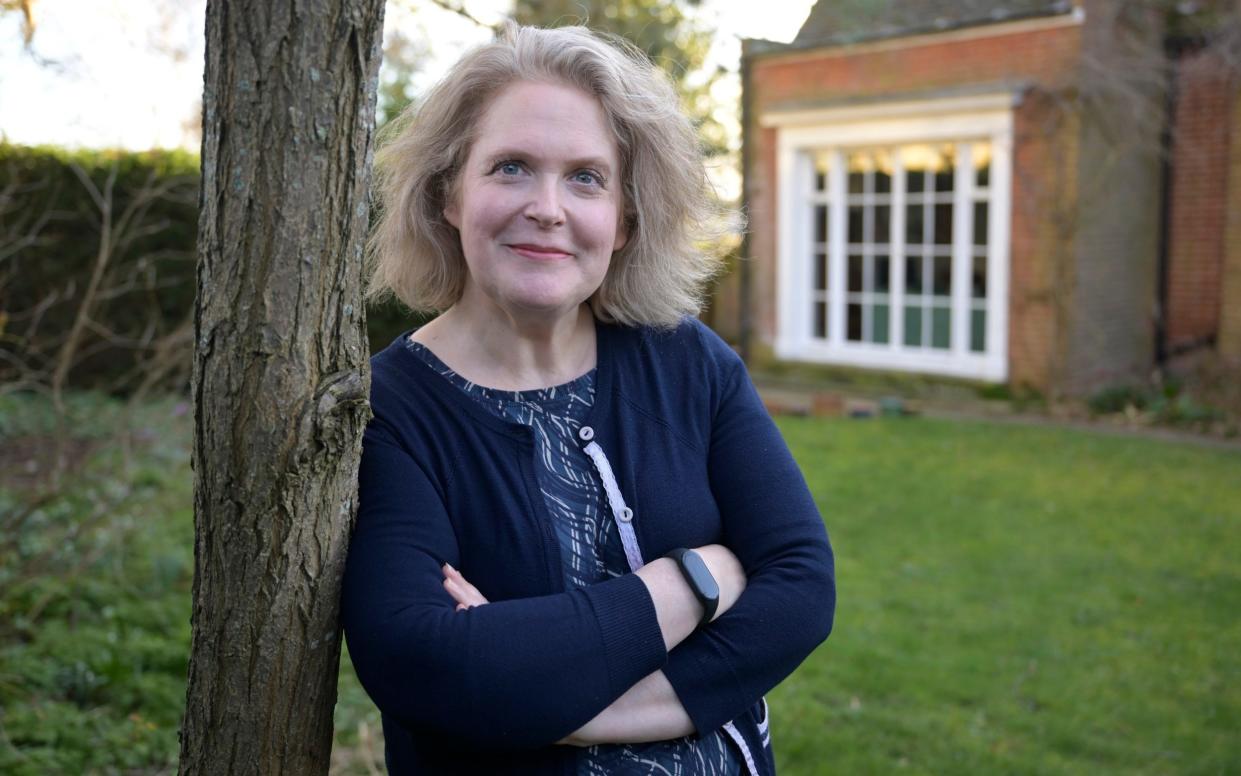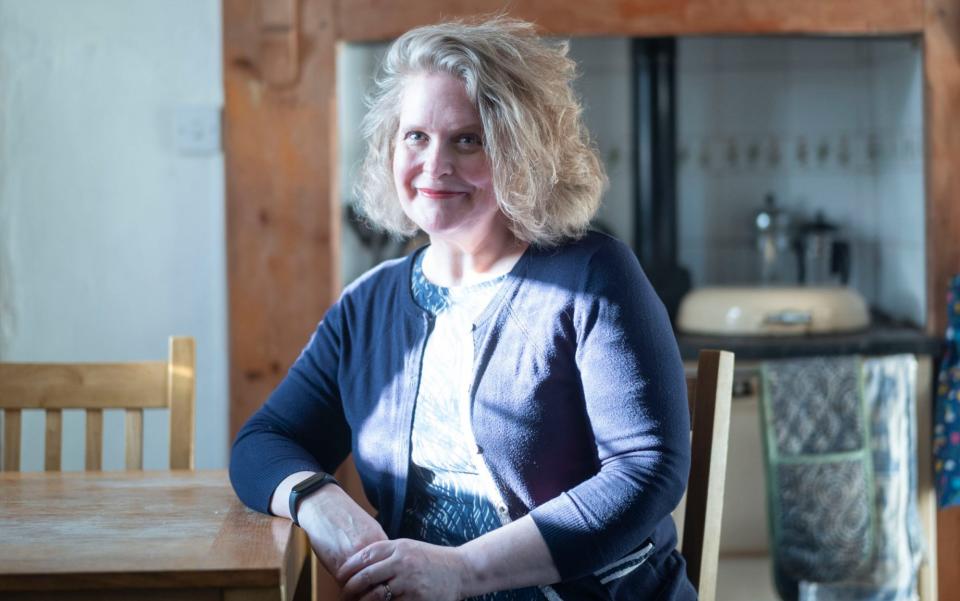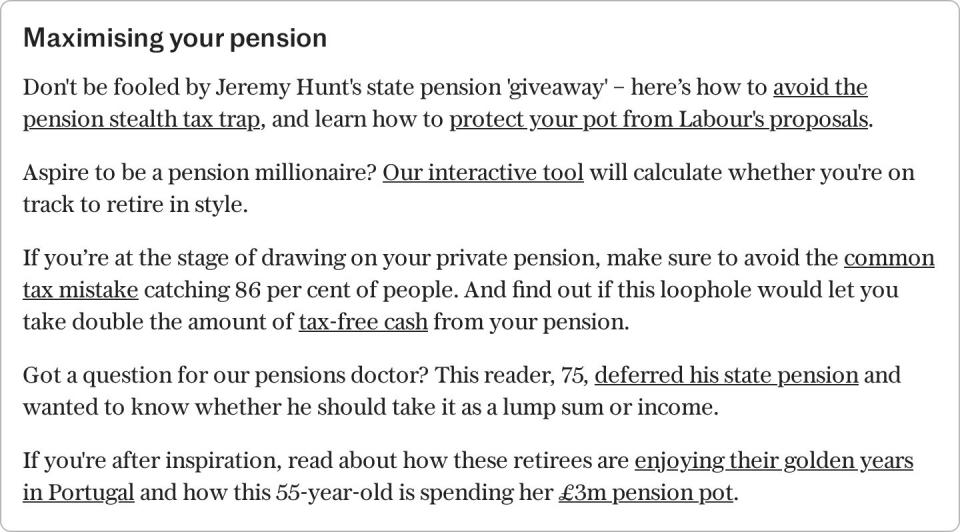‘I spent a week living on little more than the state pension – it wasn’t much of a life’

Now I am 52, retirement is creeping ever closer – and it’s a prospect that’s becoming increasingly expensive. Costs in retirement have risen by as much as a third in the space of a year, according to the latest research from the Pensions & Lifetime Savings Association (PLSA).
The PLSA calculates retirement living standards to help show what life in retirement looks like for couples and single retirees at three different income levels: minimum, moderate and comfortable. The aim is to give people an idea of how much income they might need when the work stops – and it’s invariably more than you might think.
Before the increases were announced, I was challenged by online pension provider PensionBee to spend a week living on the minimum retirement living standard, followed by a week on the more generous “moderate” version.
The minimum retirement living standard, which is meant to cover a retiree’s essential needs while living with dignity, has gone up 12.7pc this year for a single person, from £12,800 to £14,400 a year after tax. This is assuming you aren’t burdened with rent, mortgage or social care costs.
The gap between this and the full new state pension – due to rise to £11,500 a year from April – has widened, meaning it’s becoming increasingly untenable to live on the state pension alone.
Meanwhile, the cost of the “moderate” retirement living standard – designed to provide more financial security and flexibility – has soared 34.3pc for a single person, up from £23,300 to £31,300 a year.
For me, living on £246 a week for the previous minimum living standard budget meant there was little left after deducting chunky household costs. Stripping my expenses down to just the essential bills – council tax, water, electricity, heating oil, broadband and landline, mobile, TV licence and home insurance – came to just over £182 a week, leaving less than £64 for everything else.
Basically, I could not afford to keep living in my large and draughty home in Suffolk, let alone keep my car, dog or multifocal contact lenses.
The reality of living on such a tight budget hit home in the middle of the cheapest supermarket I could reach within walking distance, when I flinched at the price labels on the toothpaste shelf.
I’d spent ages drawing up a meal plan based on value ranges, tinned food and loose fruit and vegetables, and another £4 or so on toothpaste was painful.
In the end, my meals and snacks for the week, including an allowance for store cupboard staples such as oil, vinegar and spices, came to just over £25.
I’d committed to a meal out before the challenge, which isn’t easy to accommodate on my budget, but I kept my share of the bill to just over a tenner by avoiding a starter, choosing a cheap main course and drinking tap water, and thanks to a 25pc discount via Meerkat Meals.
To cut the cost of exercising, I started a free running programme and used a free “refer a friend” day pass for our local leisure centre to enjoy a swim, sauna and Pilates class.
Other free ways to spend the time included meeting up with a friend for a walk, rather than dinner or drinks, finally started a knitting project I’d bought back in lockdown, downloading free ebooks discovered via BookBub and the Libby app, and using vouchers from my Club Lloyds current account for free cinema tickets.
I also took a packed lunch and headed off for a day trip to Ipswich, on the basis that if I was old enough to retire, I’d qualify for a free older person’s bus pass. My “no spend day”, including a free tour of Christchurch Mansion, was going well until I borrowed a board game from the county library and got hit by £2.51 in unpaid library fines.
In the end, I managed to scrape by a few pence below the budget. However, it was hardly sustainable, with no leeway for any extra expenses. I am determined this should not become my reality, year in, year out, during retirement.

After a week on the minimum standard, the £448 budget for a week on the previous version of the moderate standard seemed like riches beyond the dreams of avarice.
I was relieved to add back in the running costs of both my small electric car and my small cairn terrier, plus my gym membership and a tenner for contact lenses.
However, even this started to look less generous once I included expenses beyond my regular bills – such as the annual boiler service, the chimney sweep once a year and four visits from the window cleaner.
In practice, after allowing for extras such as clothing, toiletries and healthcare, I was left with little more discretionary spending than during the week on the minimum income.
At least now I had a car, I could nip into budget supermarkets when passing, as I normally do. I was able to include some of the food I’d really missed, such as berries and fresh fish. However, by taking advantage of Aldi’s Super Six and Lidl’s Pick of the Week, I spent only about a fiver more on my meals and snacks than when I was trying to cut back, at just under £30.
Things fell apart on the day I forked out £45 for hacking back the wisteria, vine and climbing roses that were heading for the roof tiles, plus £114.70 for mending a fence panel blown down in a storm. This double whammy also blew out my “moderate” budget – a vivid reminder of the need to save for emergencies, whatever your age.
So much for my dreams of travelling after I retire. Even on the moderate living standard, I didn’t make it further than Colchester. Taking this “try before you buy” pension challenge brought home a stark choice: I either save more now or move house later.
Luckily, I do still have time to stash more cash in my pension, take the free money added in tax relief, and hopefully benefit from stock market growth. Sadly, as I’m self-employed as a personal finance journalist, I miss out on additional employer contributions.
To reach the new moderate retirement living standard, I’ll need to generate nearly £24,482 a year before tax, on top of the full new state pension from April. That means I’ll need £300,000 to £500,000 in my pension pot by the time I retire, according to the PLSA, if I want the guaranteed income for life from an annuity, based on annuity rates ranging from £5,000 to £8,000 per £100,000.
Alternatively, I’ll need to accumulate roughly £650,000 by state pension age, currently 66, if I want to leave the money invested and use drawdown to generate the same income until the age of 100, according to calculations by PensionBee.
Suffice to say, I quickly ploughed a lump sum into my pension.


